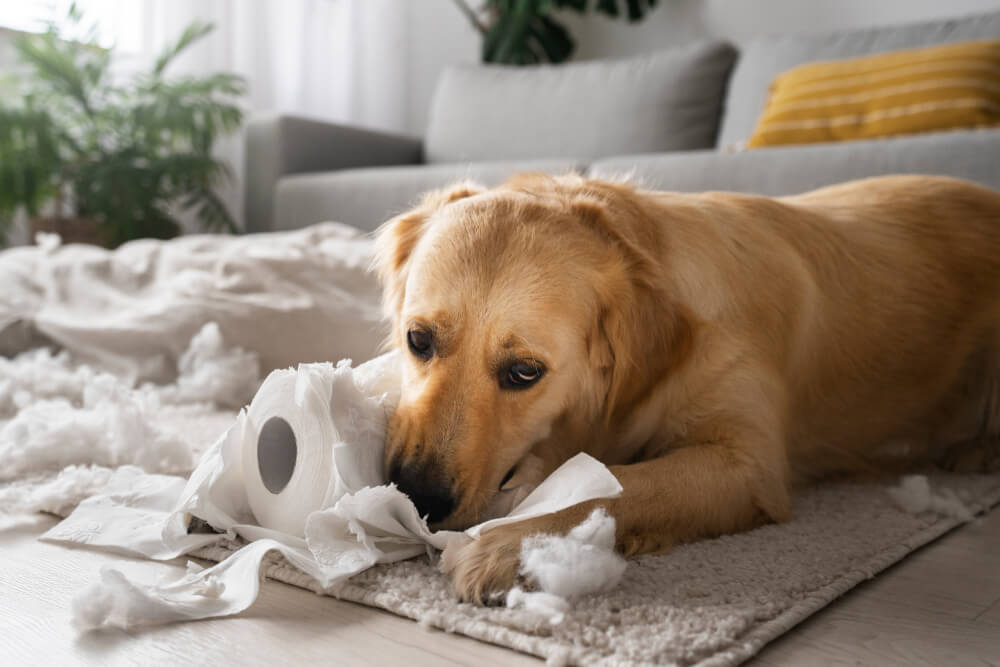Hearing your dog cough at night can be concerning. While occasional coughing might not be alarming, persistent nighttime coughing may signal an underlying issue that needs attention. Understanding the reasons behind this can help you take the right steps to ensure your furry friend’s comfort and health.
In this article, we’ll explore common causes of nighttime coughing in dogs, when to seek help, and tips to manage or prevent it.

Why Do Dogs Cough at Night?
Coughing is a natural reflex that helps clear irritants or mucus from the respiratory tract. When it happens frequently at night, it can indicate various health conditions ranging from minor irritations to more serious illnesses.
Common Causes of Nighttime Coughing in Dogs
Kennel Cough
Kennel cough, or canine infectious tracheobronchitis, is a contagious respiratory condition caused by viruses or bacteria.
- Symptoms: Dry, hacking cough, often described as sounding like a “honking” noise.
- When It Worsens: The cough can become more pronounced at night when the dog is lying down.
- Causes: Contact with infected dogs in kennels, dog parks, or grooming facilities.
Heart Disease
Heart issues, particularly congestive heart failure, can cause nighttime coughing.
- Symptoms: Persistent coughing, lethargy, and difficulty breathing.
- How It Affects Nighttime: Fluid buildup in the lungs or around the heart can make lying down uncomfortable.
Allergies or Irritants
Dogs can be sensitive to environmental allergens or irritants like smoke, dust, or pollen.
- Symptoms: Intermittent coughing, sneezing, or watery eyes.
- Triggers at Night: Dusty bedding or poor air circulation in the sleeping area.
Tracheal Collapse
This condition occurs when the trachea (windpipe) becomes weak and collapses, partially obstructing airflow.
- Symptoms: A chronic cough that sounds like a goose honk, especially during excitement or pressure on the neck.
- Nighttime Impact: The condition can worsen when the dog is relaxed and lying down.
Respiratory Infections or Pneumonia
Bacterial or viral infections can lead to respiratory issues that cause nighttime coughing.
- Symptoms: Wet, productive cough, fever, nasal discharge, and difficulty breathing.
- Worsens at Night: The accumulation of mucus can lead to increased coughing when lying down.
Parasites
Certain parasites, like heartworms or lungworms, can cause coughing in dogs.
- Symptoms: Chronic coughing, weight loss, and fatigue.
- Nighttime Coughing: Parasites in the lungs or heart can lead to breathing difficulties, especially at rest.
Foreign Object or Obstruction
If your dog has inhaled or swallowed something that’s partially obstructing their airway, it may cause persistent coughing.
- Symptoms: Sudden coughing, gagging, or difficulty breathing.
- Urgency: This requires immediate attention.
When to Worry About a Dog’s Nighttime Cough
While some causes of coughing are mild and resolve on their own, others require prompt veterinary care.
Signs to Watch For
- Coughing persists for more than a week.
- Your dog seems lethargic or loses their appetite.
- Breathing difficulties or wheezing are present.
- Coughing produces blood or mucus.
- Accompanied by vomiting or gagging.
If you notice these symptoms, consult your veterinarian as soon as possible.

Diagnosing Nighttime Coughing
Your veterinarian will likely perform several tests to identify the cause of your dog’s coughing:
- Physical Exam: Checking for abnormalities in the chest, throat, and mouth.
- X-Rays: To examine the lungs, heart, and trachea.
- Blood Tests: To detect infections, heartworm, or other underlying issues.
- Tracheal Wash or Bronchoscopy: Collecting samples from the airway for further analysis.
Treatment Options for Nighttime Coughing
The treatment will depend on the underlying cause:
Kennel Cough
- Often resolves on its own, but antibiotics or cough suppressants may be prescribed for severe cases.
- Rest and hydration are essential.
Heart Disease
- Medications to manage heart function and reduce fluid buildup.
- Lifestyle changes, including a low-sodium diet.
Allergies
- Removing allergens or irritants from your dog’s environment.
- Antihistamines or allergy medications may be prescribed.
Tracheal Collapse
- Weight management to reduce strain on the trachea.
- Medications or, in severe cases, surgery to support the windpipe.
Infections or Pneumonia
- Antibiotics or antiviral medications to treat the infection.
- Steam therapy or nebulizers may help loosen mucus.
Parasites
- Deworming medications to eliminate parasites.
- Preventive heartworm medications for ongoing protection.
Obstruction
- Immediate removal of the foreign object by a veterinarian.
How to Help Your Dog at Night
If your dog’s coughing is mild or while you wait for a vet appointment, there are steps you can take to keep them comfortable:
Provide a Humid Environment
- Use a humidifier in the room to keep the air moist, which can soothe the throat.
Elevate Their Head
- Use a supportive pillow or adjust their sleeping area to prevent fluid buildup in the chest.
Keep Them Hydrated
- Encourage your dog to drink water, which helps thin mucus and soothe the throat.
Minimize Excitement
- Keep your dog calm to avoid triggering coughing episodes.
Preventing Nighttime Coughing
Vaccinations
- Keep up with vaccinations to protect against kennel cough and other infections.
Regular Vet Checkups
- Early detection of heartworm, respiratory issues, or other health problems.
Healthy Environment
- Clean and dust your dog’s sleeping area regularly.
- Avoid exposure to smoke or strong chemicals.
Weight Management
- A healthy weight reduces strain on the respiratory system and trachea.
Final Thoughts
Nighttime coughing in dogs is not just disruptive—it’s often a sign that something might be wrong. By understanding the possible causes and taking appropriate steps, you can help your dog breathe easier and feel better.
If you’re ever in doubt, don’t hesitate to consult your veterinarian. A healthy, happy dog means peaceful nights for both of you!








